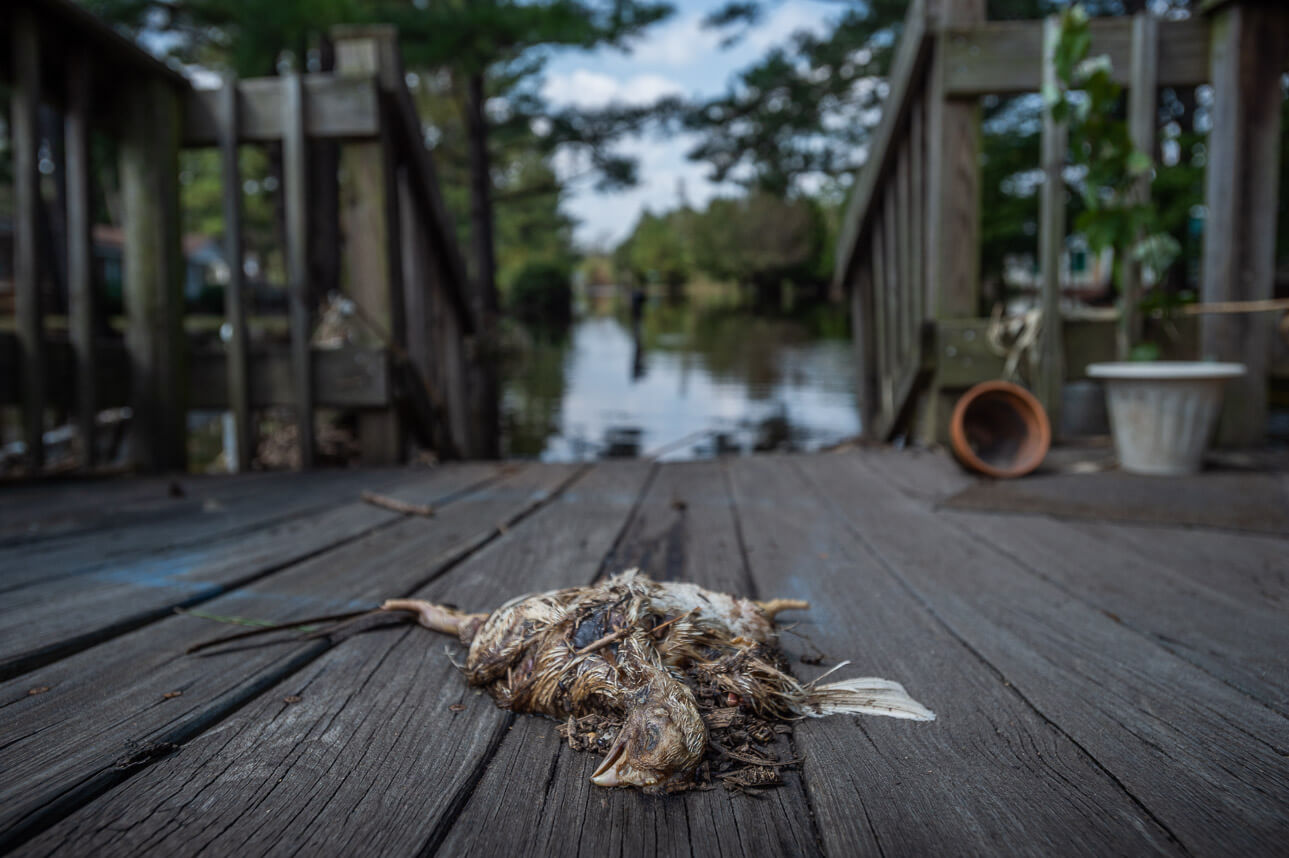Taxpayers Fund Cleanup of Dead Farmed Animals After Hurricane Florence
Update: Up to $20 million in taxpayers’ money is being used to clean up the massive health and environmental crisis that the heartless meat industry created in North Carolina.
Thanks to the inaction of farmers, roughly 5,500 hogs and 4.2 million turkeys and chickens died during Hurricane Florence. Now, North Carolina officials have asked the Federal Emergency Management Agency (FEMA) to pay for a massive clean-up effort, which involves turning the millions of animal corpses into compost.
Apparently, state officials learned nothing from the last such catastrophe. In 2016, North Carolina persuaded FEMA to fund a similar massive cleanup after 1.8 million chickens died in the floodwaters of Hurricane Matthew.
Eating animal flesh snuffs out the lives of sentient beings and destroys the environment. Tired of subsidizing the meat industry and paying to clean up its messes? For animals and the planet, please go vegan today. PETA will send you (or a friend!) a free vegan starter kit!
The following was originally published on September 19, 2018:
Unlike nearly 2 million humans residing in Hurricane Florence’s destructive path who had the chance to evacuate, millions of animals imprisoned inside metal crates and crowded sheds were denied even a slim chance at survival.
The North Carolina Department of Agriculture & Consumer Services stated that, so far, at least 3.4 million chickens and turkeys and 5,500 pigs have been killed by Florence. While that’s already twice as many casualties as those caused by Hurricane Matthew in 2016, many expect the death toll to rise. Some farms remain isolated by floodwaters, which means that more animals could be dead or will die if they’re not reached soon.
Sanderson Farms—one of the country’s largest facilities that raises chickens for their flesh in massive sheds—reported that at least 1.7 million chickens imprisoned on its farms had died in the storm. It also said that 6 million more chickens trapped on 30 of its farms were unreachable because of floodwaters and that unless feed trucks can reach them, the death total could “escalate.”
Certainly, North Carolina could be covered with feces and corpses in the upcoming days.
Massive farm operations are often littered with huge lagoons containing animal feces, urine, and rotting body parts—and North Carolina is notorious for them. Rising waters and damaging winds turn these disgusting pits into even bigger environmental nightmares than they already were. According to the state’s Department of Environmental Quality, a lagoon filled with pig waste in Duplin County has already been breached and has spilled its contents. Some 25 other lagoons in the state sustained physical damage, overflowed with wastewater, or were filled to the brim by floodwaters.
Imagine how terrified you would be if you were abandoned and trapped in a flooding shed with no possible escape.
Not a single one of these thinking, conscious living beings chose to die. No doubt, until their last minutes, they did everything possible to keep their heads above water in a relentless struggle to preserve their own lives. They probably cried out in panic for relief that would never come.
At a minimum, these animals deserved a fighting chance at survival. But because meat producers see animals as something, not someone—as items to claim on insurance policies, rather than as individuals who value their own lives—they didn’t care enough to evacuate them or even give them a chance to live by releasing them before the storm hit.
We must do better. Go vegan, and encourage others to go vegan, too.
Until we stop eating animals, they’ll continue to experience horrible, terrifying deaths, whether that’s in a slaughterhouse where their throats are slit—often while they’re still conscious—or when they’re abandoned in treacherous storms like Hurricane Florence.
Please help save nearly 200 animals every year by simply leaving them off your plate—order a free vegan starter kit today for everything that you need to get started. If you’re already vegan, great! Help a friend or family member go vegan by sending a starter kit to their doorstep.


